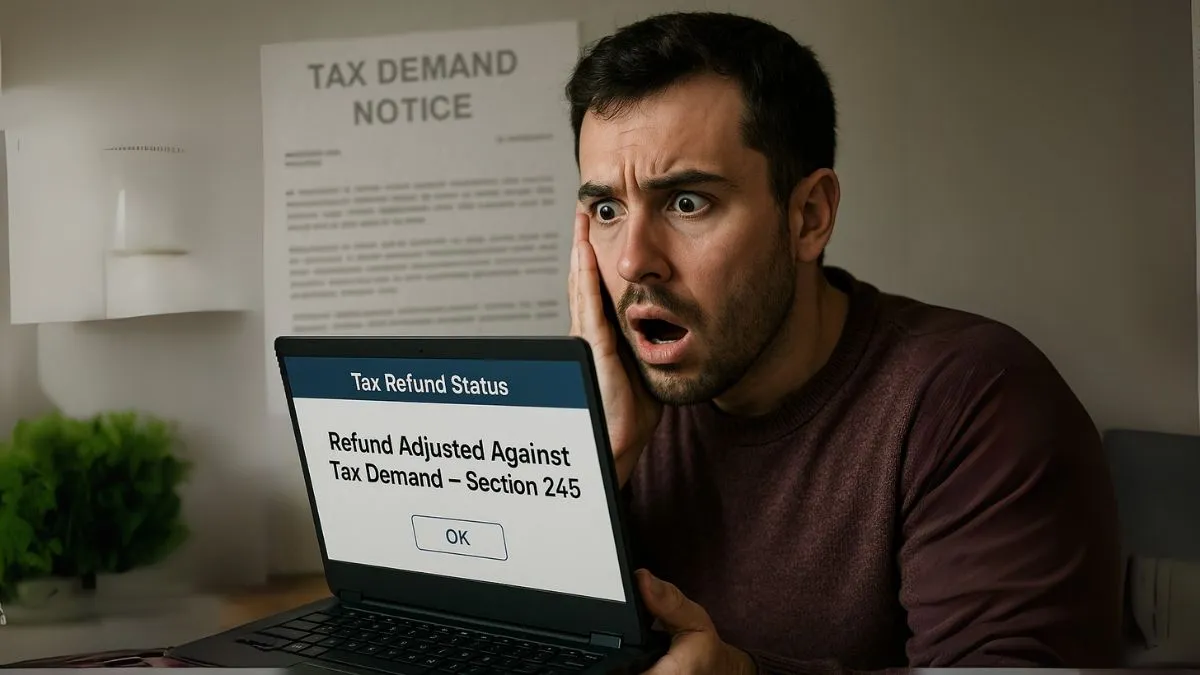
When it comes to income tax in India, one section that often creates curiosity & confusion is Section 245/245(1) of the Income Tax Act. Many taxpayers wonder what happens when they have an outstanding tax liability from previous years but are also due a tax refund. The answer lies in this very section, which provides the legal framework for setting off refunds against tax remaining payable.
In simple words, Section 245/245(1) of the Income Tax Act allows the Assessing Officer (AO) to adjust any refund due to the taxpayer against any outstanding tax liability from previous assessment years. This provision is crucial because it ensures that tax dues are not left unsettled while refunds are being processed.
What Does Section 245/245(1) of the Income Tax Act Say?
Section 245 clearly states that if any refund is due to a taxpayer under any provision of the Income Tax Act, & there is an outstanding tax demand payable by that person, the Assessing Officer (AO) can set off the refund against the pending dues. However, this is not an arbitrary decision.
Before making such an adjustment, the Income Tax Department is required to issue an intimation to the taxpayer, informing them of the outstanding dues and the intention to adjust the refund accordingly. This gives the taxpayer an opportunity to respond or raise objections if any discrepancies are found.
The primary purpose of Section 245/245(1) of the Income Tax Act is to create a mechanism for adjusting tax demands against a taxpayer's pending refunds. This ensures that tax arrears are cleared efficiently while also maintaining transparency & fairness."
How Does Set Off of Refunds Against Tax Remaining Payable Work?
Let’s break down the process into simple steps:
- The taxpayer files an Income Tax Return (ITR) & claims a refund.
- The Income Tax Department checks for any outstanding demands under the taxpayer’s PAN for previous years.
- If any tax demand exists, the Assessing Officer (AO) invokes Section 245 & sends an intimation to the taxpayer.
- The intimation mentions the amount of refund that will be adjusted against the pending demand.
- If the taxpayer agrees or doesn’t respond, the adjustment is made, & any balance refund (if any) is issued."
- If the taxpayer disagrees, they have the right to contest the demand."
Common Scenarios Where Section 245/245(1) is Applied
The application of Section 245 of the Income Tax Act is more common than you might think. Some typical situations include:
- When a taxpayer forgets to pay a small amount of tax from previous years.
- When there is a mismatch in TDS (Tax Deducted at Source) credits.
- When the taxpayer has filed rectifications or appeals, but the demands are still showing as pending.
- When there are interest or penalty components from older assessments.
In all such cases, instead of issuing a refund without addressing pending dues, the department uses Section 245/245(1) to ensure compliance.
Why Intimation Under Section 245 Matters
The intimation issued to you notifying you that you have dues pending for a previous year is not just a formality—it's a legal safeguard. This ensures that:
- Taxpayers are not caught by surprise.
- They get a chance to verify the accuracy of outstanding demands.
- They can take appropriate actions such as paying the demand, filing a rectification, or seeking legal remedy.
Without such an intimation, any adjustment made unilaterally would be against the principles of natural justice.
Rights of Taxpayers Under Section 245/245(1)
While Section 245/245(1) of the Income Tax Act empowers the department, it also protects taxpayers’ rights. You have the right to:
- Dispute the outstanding demand if you believe it's incorrect.
- Seek rectification or appeal if the demand is under challenge.
- Ask for a stay of demand under specific circumstances.
Moreover, taxpayers can view their outstanding demands on the Income Tax e-Filing Portal and take timely action to avoid such adjustments.
Key Takeaways from Section 245/245(1) of Income Tax Act
- Section 245/245(1) allows the Income Tax Department to adjust pending tax demands against your refund.
- You will receive an intimation before the adjustment is made.
- The Assessing Officer (AO) plays a central role in carrying out this process.
- You have the right to contest or rectify any incorrect demands.
- This section helps maintain a fair balance between refunds and pending dues.
Practical Tips to Avoid Refund Adjustment Issues:
- Always check your outstanding demand status before filing ITR.
- Clear any small tax dues promptly to avoid future adjustments.
- Respond quickly to any intimation under Section 245.
- Keep track of all appeals, rectifications, or pending cases to avoid wrongful adjustments.
Need Help? Let Us Handle Your Tax Worries!
At Callmyca.com, our experts can help you tackle issues related to Section 245/245(1) & ensure your tax filings, refunds, & demands are handled professionally—so you can relax while we do the work for you. Click here to get started today!











